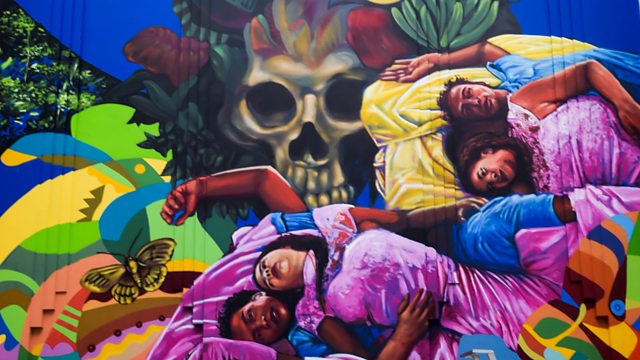One Hundred Years of Solitude: The story of Latin America
One of the best-known Latin American novels of the 20th century: One Hundred Years of Solitude by the Nobel Prize-winning author from Colombia, Gabriel García Márquez.
Considered to be one of literature’s supreme achievements, One Hundred Years of Solitude by the Colombian novelist Gabriel García Márquez is reported to be the most popular work of Spanish-language fiction since Don Quixote in the 17th century. Written in 1967, it tells the story of seven generations of the Buendía family, whose patriarch is the founder of a fictional Colombian village called Macondo. But why is it said this novel – which fuses the fantastical and the real – tells the story of Latin America and has given an entire continent its voice?
Joining Bridget Kendall are Ilan Stavans, Professor in Latin American and Latino Culture at Amherst College in Massachusetts, in the United States, and the biographer of Gabriel García Márquez; María del Pilar Blanco, Associate Professor in Spanish American literature at Oxford University, and Parvati Nair, Professor of Hispanic, Cultural and Migration studies at Queen Mary, University of London.
Produced: Anne Khazam
(Photo: Partial view of a mural painting by Oscar Gonzalez and Andrew Pisacane representing passages from One Hundred Years of Solitude at the National Library in Bogota. Credit: Raul Arboleda/AFP via Getty Images)
Last on
More episodes
Broadcasts
- Thu 15 Apr 2021 09:06GMT91�ȱ� World Service
- Thu 15 Apr 2021 23:06GMT91�ȱ� World Service
- Sun 18 Apr 2021 13:06GMT91�ȱ� World Service
Featured in...
![]()
Classic literature: Reading between the lines—The Forum
From Moby Dick to the Moomins, exploring the books that captured the world's imagination
Do you think political or business leaders need to be charismatic? Or do you prefer highly competent but somewhat stern people?
Podcast
-
![]()
The Forum
The programme that explains the present by exploring the past




